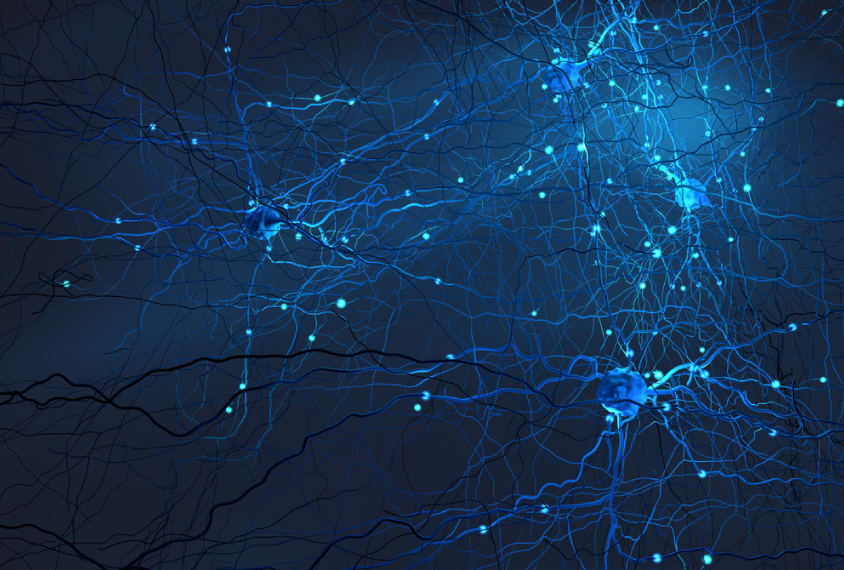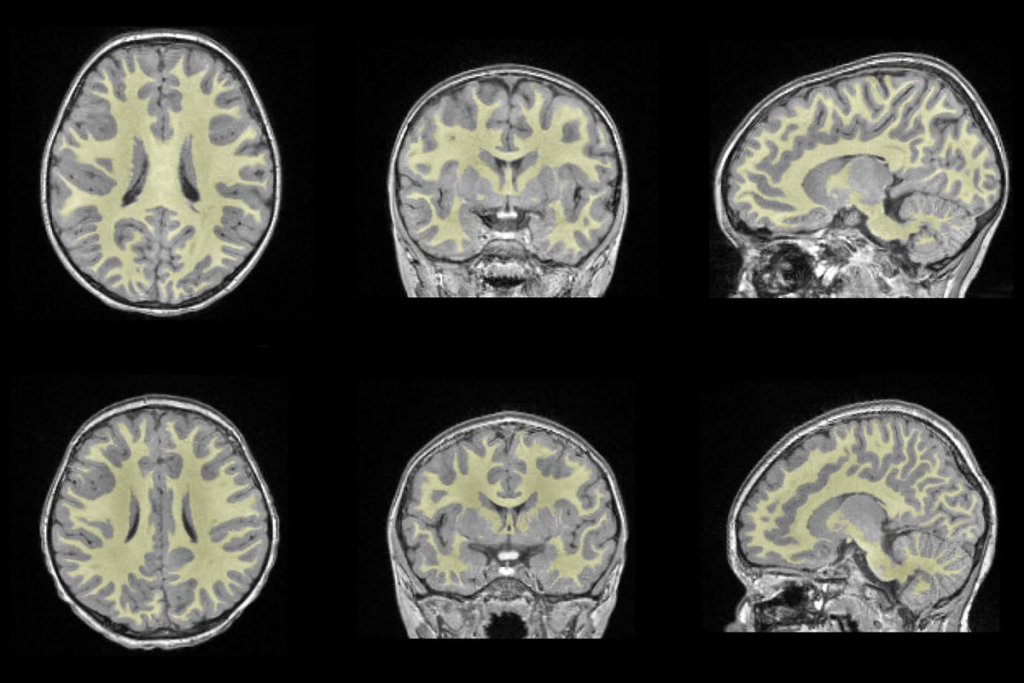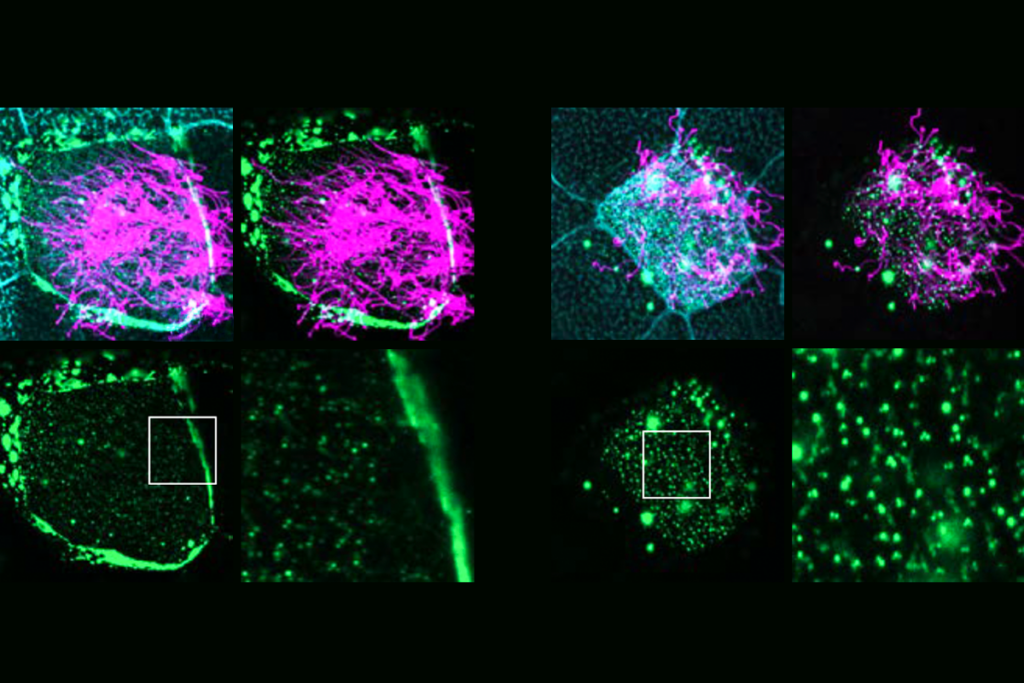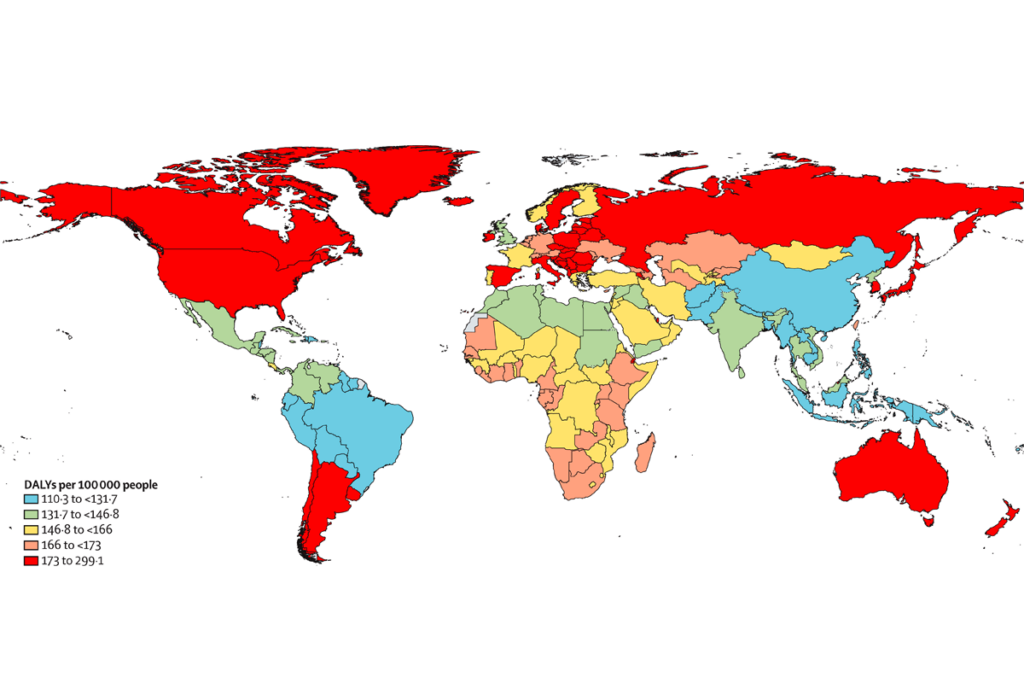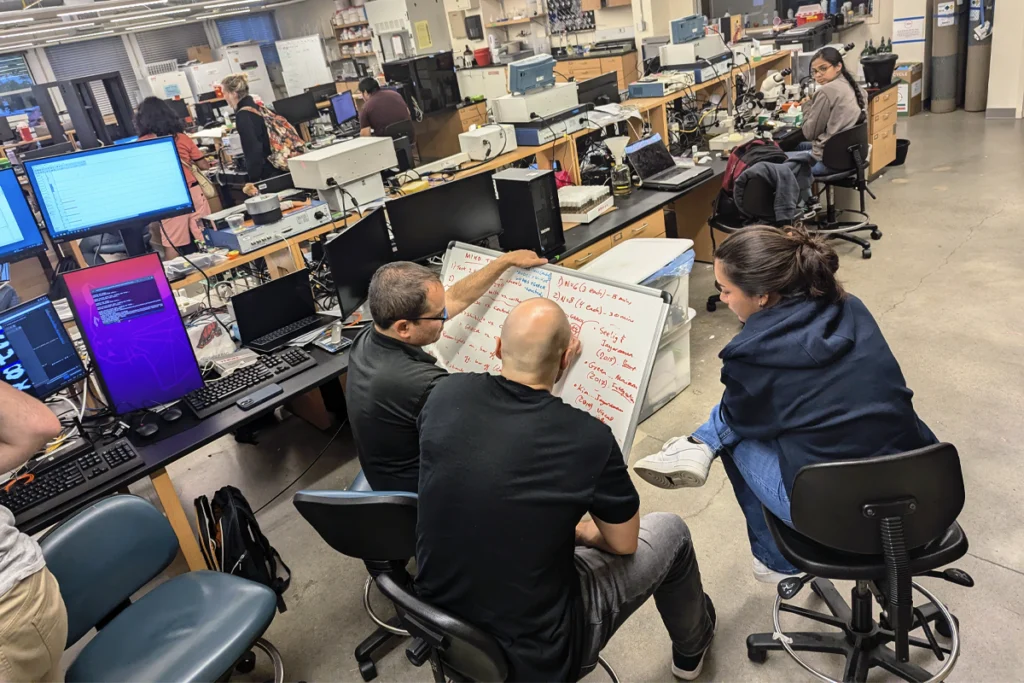The Force was with the St-Pierre Lab this week. “We finally achieved a dream I had 10 years ago,” the lab tweeted, sharing a link to their new paper in Cell that describes the JEDI-2P, a genetically encoded voltage indicator (GEVI).
We finally achieved a dream I had 10 years ago: sustained (>30 min) deep-tissue (>400 um deep) imaging of fast voltage dynamics (e.g., spikes in bursts) in the brains of awake behaving mice. See our paper in *Cell* here: https://t.co/empIhzY4Gu
— St-Pierre Lab (@StPierreLab) August 22, 2022
The researchers concluded that the protein-based biosensor “addresses a critical need in neuroscience: the noninvasive recording of rapid voltage transients for extended durations and in deep cortical layers.”
The tool belongs to a family of GEVIs that have “a bright future,” wrote Michael Lin, associate professor of neurobiology and bioengineering at Stanford University, in a quote tweet.
Congrats François on the nice work! From your first ASAP1 result it was clear that ASAP-family GEVIs had a bright future… And that ASAP1 would give rise to many useful variants
Your announcement is just in time for my new twitter account too https://t.co/Ji67c9ZNBO
— Michael Lin (@MichaelLinLab) August 23, 2022
Katrin Franke, junior research group leader at University of Tübingen in Germany, tweeted congratulations to the team, adding “happy to have contributed the retina-part to this great project /w @AnnaIntegrated/@mkorympidou. Try it out-available at Addgene!”
Congrats @StPierreLab et al. for the development of JEDI2P, a new voltage indicator for sustained and deep-tissue imaging published at @CellCellPress????happy to have contributed the retina-part to this great project /w @AnnaIntegrated/@mkorympidou. Try it out-available at Addgene! https://t.co/RVchH7Okyv
— Katrin Franke (@kfrankelab) August 22, 2022
The sensor is “screened & optimized for two-photon #Microscopy – perfect for blazingly fast AOD imaging,” tweeted Fabian Voigt, postdoctoral fellow at Harvard.
@StPierreLab introduces JEDI-2P: A genetically encoded voltage indicator screened & optimized for two-photon #Microscopy – perfect for blazingly fast AOD imaging by @DieudonneLab! https://t.co/yGM9WgBP6y https://t.co/z06wmndilI pic.twitter.com/7yMfYF2PCq
— Fabian F. Voigt (@voigtvision) August 22, 2022
In a separate tweet, Brittany Hand, assistant professor of health and rehabilitation sciences at Ohio State University in Columbus, shared her new review paper that lists five ways providers can meet autistic people’s mental health needs.
Check out our new review paper showing autistic adults frequently use mental health services, yet continue to have unmet mental health needs. We list 5 practical ways providers can better meet this populations needs! Link to read-only full text: https://t.co/J5B5Py9cfF pic.twitter.com/IyDoSGu0QI
— Dr. Brittany N. Hand (@BN_Hand) August 23, 2022
“Very much needed and practical suggestions!” tweeted Meng-Chuan Lai, assistant professor of child and adolescent psychiatry at the University of Toronto in Canada.
Very much needed and practical suggestions! https://t.co/ZcV7OqCUGm
— Meng-Chuan Lai 賴孟泉 (@mengchuanlai) August 23, 2022
“Mental health support consistently identified as a top need among autistic people,” wrote Patrick Jachyra, assistant professor of sport and exercise sciences at Durham University in the United Kingdom, adding that people with autism don’t get the mental health support they need.
Such important work, thank you for sharing!! Mental health support consistently identified as a top need among autistic people, yet consistently not getting support across a variety of jurisdictions globally, Canada, US, UK etc https://t.co/uDtQdzeekJ
— Patrick Jachyra (@PatrickJachyra) August 23, 2022
In another thread, Steven Kapp, an autistic lecturer in psychology at the University of Portsmouth in the U.K., shared a review of the benefits and harms of interventions to improve mental health outcomes for autistic people published in Autism.
Review of interventions to treat autistics’ mental health concludes against treating “core features of autism” to improve mental health, instead of mental health directly. Yet evidence lacking for specific interventions for autistics w/ poor mental health https://t.co/3Wjzr1nGku
— Steven Kapp (@drstevenkapp) August 19, 2022
Kapp remarked that the review “concludes against treating ‘core features of autism’ to improve mental health, instead of mental health directly.”
“This will be a slow, careful read with coffee in hand,” wrote Sarah Edmunds, assistant professor of psychology at the University of South Carolina, in a quote tweet. She then added “We need more evidence as to whether our EBTs for neurotypical people with anxiety, depression, and trauma work as well (and in the same way) for autistic people with these mental health challenges.”
This will be a slow, careful read with coffee in hand. We need more evidence as to whether our EBTs for neurotypical people with anxiety, depression, and trauma work as well (and in the same way) for autistic people with these mental health challenges. https://t.co/uHL7ItiJPk
— Sarah Edmunds, PhD (@SarahREdmunds) August 19, 2022
Lastly, Noah Sasson, professor of psychology at the University of Texas at Dallas, shared a study that appeared in Autism Research, the findings of which suggests that use of the Autism Diagnostic Observation Schedule to confirm autism diagnoses for enrollment in research studies leads to an underrepresentation of girls participating in those studies. “Reliance on community diagnosis rather than confirmatory diagnostic assessments resulted in more equal sex ratios,” he tweeted.
“Using the ADOS as a confirmatory diagnostic measure resulted in the exclusion of autistic females at a rate over 2.5 times higher than that of autistic males… Reliance on community diagnosis rather than confirmatory diagnostic assessments resulted in more equal sex ratios.” https://t.co/N7PJCs3p0p
— Noah Sasson (@Noahsasson) August 22, 2022
“The ADOS-2 is long overdue an overhaul to be fit for diagnosis in females,” tweeted Bianca Schuster, postdoctoral fellow of philosophy at Waseda University in Tokyo.
The ADOS-2 is long overdue an overhaul to be fit for diagnosis in females. I have often found exactly those items not used for final diagnosis are the ones where females score highly… https://t.co/IQUb8ujaBL
— Bianca Schuster (@BiancaASchuster) August 23, 2022
“More evidence supporting a need to rethink nuanced autistic presentations and evaluate sex-based measurement bias,” tweeted Catherine Burrows, assistant professor of pediatrics at the University of Minnesota in Minneapolis.
Really interesting article showing that the rate of diagnosed ASD is not the same as the rate of people meeting diagnostic threshold on the ADOS. More evidence supporting a need to rethink nuanced autistic presentations and evaluate sex-based measurement bias. https://t.co/AmqZ764uSR
— Casey Burrows, PhD, LP (@CaseyBurrowsPhD) August 22, 2022
That’s it for this week’s Community Newsletter! If you have any suggestions for interesting social posts you saw in the autism research sphere, feel free to send an email to [email protected].
Follow us on Facebook, Twitter (@Spectrum), Instagram and LinkedIn.
Subscribe to get the best of Spectrum straight to your inbox.
